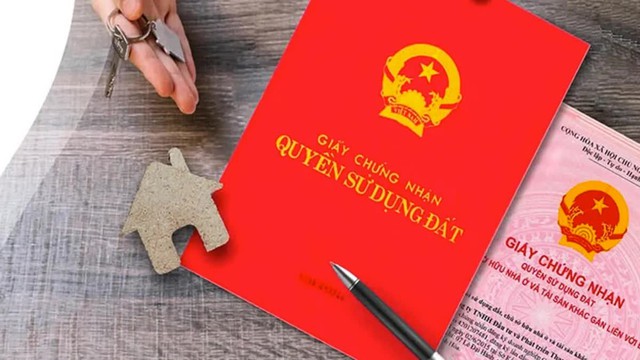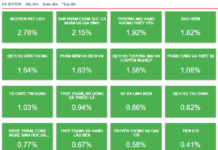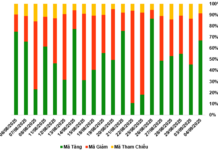
Increasing Costs When Making First Red Book
Starting from January 1, 2026, provinces and cities nationwide will issue new land prices based on market principles instead of the current Land Price Framework. This will lead to a significant increase in the cost of making Red Book.
In the amounts of money to be paid when applying for the first issuance of the Red Book, there are amounts of money calculated according to the land price on the Land Price Table:
– Land use money;
– Land rent (if available);
– Pre-paid fees.
Issuance of red book for land without documents before July 1, 2014
This is one of the provisions attracting the attention of many people. Accordingly, Land Law 2024 stipulates that land without documents before 01/7/2014 meets the following conditions will be granted with a Red Book:
– Stable land use before 01/7/2014;
– No violation of land laws;
– Not subject to unauthorized land transfer;
– Now being confirmed by the People’s Committee (UBND) of the commune that there is no dispute.
Compared to the current regulations in Land Law 2013, the new law has extended the recognition for land without documents for another 10 years, from 01/7/2004 to 01/7/2014.
Cases of land violations still granted with Red Book
According to Land Law 2024, specifically in Article 139 of Land Law 2024, land users who violate will still be considered for granting Red Books in the following cases:
Case 1:
– Using encroached land, occupying the safety corridors of public works after the State has announced and set up protection corridor landmarks; or
– Encroaching, occupying roads, sidewalks, pavements after the State has announced the construction limits; or
– Encroaching on land, occupying land for the purpose of building administrative headquarters, projects, and other public works
Now with the adjustment of land use planning, construction planning approved by the competent authority that the encroached or occupied land no longer falls within the corridors of public works safety; construction limits of roads; not used for administrative headquarters, projects, and other public works.
Case 2:
– Currently using encroached or occupied land without origin from agricultural or forestry land that the State has assigned to use without land use fees for specialized protection and development of special-use forests, forest protection attached to places where there is no Forest Management Board.
– Currently using encroached or occupied land without origin from agricultural or forestry land that the State has assigned to use without land use fees for agricultural production purposes as residences before 01/7/2014 and not within the forestry planning for special-use forests, forest protection, and construction of public infrastructure.
Case 3:
Encroached or occupied land that does not fall into the above two cases is being stably used, suitable for district-level land use planning or urban planning or rural planning.
Case 4: Households, individuals currently using agricultural land such as annual or long-term cultivated land,… which was cleared by themselves and the land is not in dispute.
From 2025, land transferred by communes after 2014 will be issued with Red Book
Clause 4 of Article 140 of Land Law 2024 states that land transferred improperly to households, individuals from 01/7/2014 to before 01/1/2025 (the effective date of Land Law 2024) meets the following conditions as prescribed in Clause 4 of Article 140 of Land Law 2024 will be granted with a Red Book:
– Now confirmed by the district-level People’s Committee where the land is located without any disputes;
– In compliance with the land use planning;
– The land users have proof of payment for using the land.
Cases not eligible for Red Book grant
Land users are not eligible for Red Book in cases specified in Article 151 of Land Law 2024:
1- Agricultural land used for public purposes as specified in Article 179 of this Law;
2- Lands assigned for management under cases specified in Article 7 of this Law, except for the cases where the assigned land is used together with the land assigned for management, a Certificate of land use right, ownership of assets attached to the land for the area of land use under the decision to assign land, lease land by authorized state agencies;
3- Leased land of land users, except for cases of leasing, subleasing of land by investors for construction business of infrastructure structures, in accordance with approved investment projects by the competent authority;
4- Allocated land, except for cases recognized land use rights at point a clause 2 of Article 181 of this Law;
5- Land subject to land recovery decisions by the competent state authorities, except for cases where it has been more than 3 years from the time of the land recovery decision without implementation;
6- Disputed land, subject to encumbrance, other measures applied to ensure the enforcement of civil judgments as prescribed by law on the enforcement of civil judgments; land use rights subject to temporary urgent measures as prescribed by law;
7- Organizations assigned by the State to use land free of land use fees for the purpose of building public works not for business purposes.
In addition, the new law also regulates cases where assets attached to land are not eligible for granting Red Books, such as: Assets attached to land, the land plot has those assets belongs to cases not eligible for Red Book/not eligible for Red Book…






![[Infographic] A Mid-Year Review: Banking Sector Performance in 2025](https://xe.today/wp-content/uploads/2025/09/info-ngan-hang-quy-2-218x150.jpg)



























